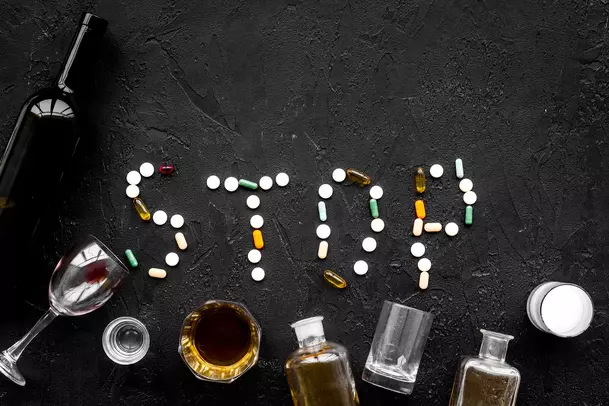
Exposure therapy is probably one of the most common forms of treatment used for people suffering from phobias, and it may also be very helpful at treating dipsophobia in particular. For obvious reasons, it may not be best for the therapist to expose the patient to alcohol by having them drink it during their session. Someone with dipsophobia may overreact frantically when they see someone else drinking alcohol or if they are asked to drink alcohol.
Managing anxiety and alcohol
- Drinking alcohol has an effect on the mind and body – and one could argue that it’s positive (at the time), which is why those who suffer from anxiety turn to alcohol to mask their feelings.
- Methyphobia or fear of alcohol, is an anxiety disorder characterized by intense and irrational fear or aversion towards the consumption, presence, or effects of alcoholic beverages.
- Most times dipsophobes will have an unrealistic view of the world, since their ideas and perceptions are built around their fear.
One study utilized a Communication Privacy Management framework and in-depth, semi-structured interviews, finding that many concealed their nondrinking status as a way to better fit societal norms. The study also found that disclosing drinking status was only done so where the benefit outweighed the negative consequences, such as to help others with their recovery and to build relationships further. This shows the fear of stigma and judgment felt by those recovering from alcohol use disorder. If you’re feeling overwhelmed by your anxiety disorder, there are other ways to seek help. If you have a history of anxiety or mental disorders, make sure to share this with your healthcare provider so you know https://ecosoberhouse.com/ how alcohol or other substances may affect you differently.
- Talk therapy, such as cognitive-behavioral therapy, helps individuals explore and address the faulty thinking patterns that contribute to their fear.
- It is a type of specific phobia which comes under the category of anxiety disorders in the DSM-V.
- However, if you decide to drink, it’s your decision whether you think that the risk is worth the rewards.
- But trying to relax with a drink or two may not give you the long-term anxiety relief you want.
Symptoms of Elevatophobia
At the very least, you can take measures to ensure the day after your anxiety levels can be managed somewhat. If you know that you will be drinking, then be prepared and make sure you have some support at the back of your cupboard. The central nervous system is affected because in order for the body to fight off the sedative effects of alcohol it puts the body into a state of hyperactivity in order to counteract this effect. This hyperactivity can lead to shaking, light/sound sensitivity, and sleep deprivation. Stress can impact the immune system and make you more susceptible to things like the common cold and flu. You might be questioning whether it’s possible to have alcohol flu or even to be allergic to beer.

DOCTOR’S MOST TRUSTED HEALTHCARE PLATFORM
Drinking water is one that everyone knows, but you can also introduce natural remedies, instead of having a big fry up or hair of the dog and wishing the day away in an anxious state. If you think you might be experiencing alcohol addiction know that it is treatable but it’s important to get fear of alcohol help and support to do so. This article will uncover some of the reasons why alcohol anxiety occurs, what you can do to prevent a hangover, and how you can more quickly recover when you’ve had a few too many. Alcohol related anxiety – or hangxiety if you will – is incredibly common – you’re not alone and there are things you can to do help. Fear of alcohol is termed “dipsophobia,” a word derived from the Greek “dipsa” (thirst) and “phobos” (fear).
- Understanding these factors is crucial for addressing the underlying causes and aiding in effective treatment.
- If you or someone you know is struggling with oenophobia, seeking professional help can make a significant difference in overcoming this fear and improving overall well-being.
- While the exact causes of dipsophobia are unknown, both genetic and environmental factors are believed to play a role.
- Someone experiencing this mental disorder may find that they become extremely anxious when around alcohol or when around people drinking alcohol.
- Treatment options for oenophobia may align with the treatment options for Methyphobia, including therapy approaches like Cognitive Behavioral Therapy (CBT) and exposure therapy.
To better understand the nature of dipsophobia, it is essential to define it as an anxiety disorder rather than a personal preference or aversion. Both phobias involve an intense fear and avoidance of substances related to alcohol. Individuals with both oenophobia and Methyphobia may experience similar symptoms, such as anxiety, panic attacks, and physical discomfort when confronted with their respective triggers. Joining support groups with individuals who have similar phobias, including Methyphobia, can provide a sense of understanding and encouragement.

How does alcohol affect anxiety?

Alcohol use disorder is not always easy to identify in a loved one, particularly when they are considered high-functioning. In such cases, their alcohol consumption may appear not to interfere with their daily responsibilities, such as maintaining employment or fulfilling family obligations. Partners and friends may notice warning signs that alcohol is becoming problematic, but these drug addiction treatment concerns are often dismissed by the individual, who justifies their behavior by pointing to their continued productivity. Despite this outward functionality, the mental and physical toll of excessive alcohol consumption accumulates over time, and without intervention, AUD inevitably progresses, impacting all facets of their well-being.



